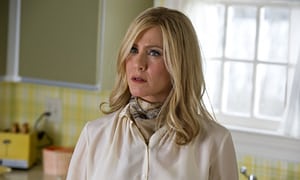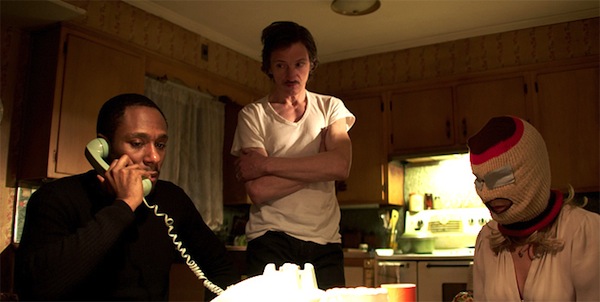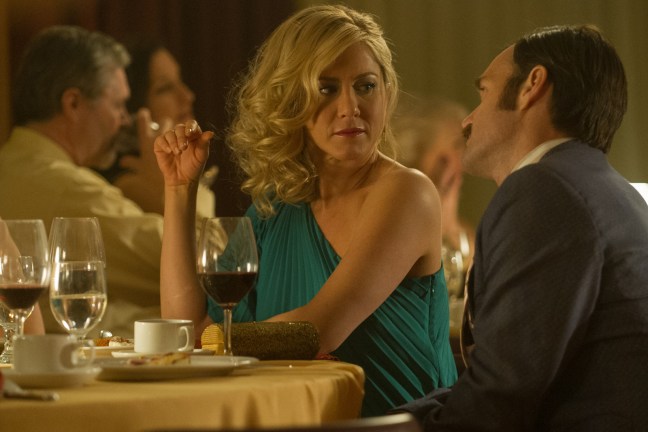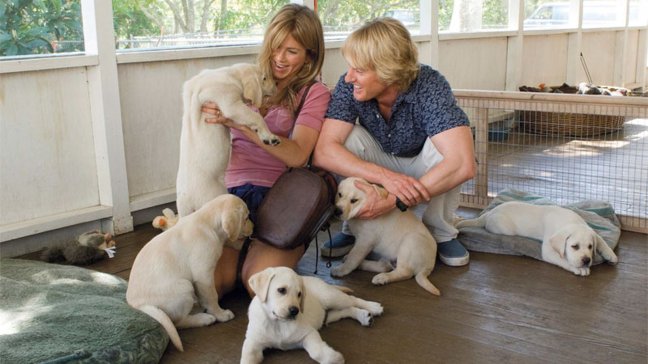Jennifer Aniston – an actor seen frequently doing great work in poor films, sometimes excellent work in good films, and occasionally, amazing work in excellent films. How are we to know this prolific and skilled artist’s full range? We’ll just have to watch all of her films. Having been utterly depressed by the truly reprehensible Horrible Bosses 2 last week, we turn to a lighter and much easier watch in the form of Life of Crime.
FILM: Life of Crime 
DIRECTOR: Daniel Schechter
YEAR: 2013
SCREENWRITERS: Daniel Schechter, Elmore Leonard
CHARACTER NAME AND PROFESSION: Mickey Dawson, full time Mum.
PLOT SUMMARY: In 1978, Mickey is the unhappy wife of corrupt real estate developer Frank Dawson (Tim Robbins) who has millions embezzled in shady deals. When Frank goes out of town for business, Mickey is kidnapped by Louis (John Hawkes) and Ordell (Yasiin Bey) who take her to the home of Richard, (Mark Boone Junior), who proudly displays his Nazi paraphernalia. Mickey can tell that Louis and Ordell don’t have much experience with their enterprise due to the haphazard way they try to protect their identities and their lack of detailed information about her husband. When they demand one million dollars for Mickey’s safe return, Frank – alongside his mistress Melanie (Isla Fisher) – prefers to call their bluff, as he was planning to divorce Mickey anyway. After their demand fails to provoke action in Frank, Ordell travels to where he an Melanie are staying in Florida, only to have Melanie switch allegiances when she sees a way to save herself and make money. Meanwhile, the plot to have Mickey killed goes awry, when Louis catches Richard trying to rape her – instead he saves Mickey and returns her home. The whole thing appears to go back to ‘normal’ when Frank returns from his trip. Mickey, furious that Frank bet her life to save a million, visits Louis where they plot with Ordell to kidnap Melanie.
CHARACTER TRAITS: Exasperated, sad, kind, intelligent, defiant.
NOTES ON PERFORMANCE: Aniston doesn’t really get to do much here other than play a straight victim role, plus her face is hidden under a balaclava for a large part of the film’s first half, so her impact on the film overall is limited. Aniston’s usual knowing looks and wit – her habit of being the most intelligent or sensible person in a film – are used here to good effect in that her kidnappers are demonstrably inept, but beyond that she’s not driving the plot here. Rather, she does convey a subtle sadness that Mickey has that’s not just due to the situation at hand, but a general melancholy with the status quo.
NOTES ON FILM: This is a film with only two female roles, which essentially depict a Madonna/whore binary, so it’s not particularly nuanced or conveying any depth or meaning. Having said that, it appears to doing something a little more thoughtful with its Elmore Leonard source novel than a simple crime gone-wrong plot, and the casting and pace certainly supports that, allowing as it does, moments for Yasiin Bey and John Hawkes to emote impulsive and sensitive aspects of their characters respectively. Early in the film, Aniston’s character is introduced as having an alternative romantic partner in the form of Will Forte’s Marshall, suggesting that she’ll be saved and re-coupled by the film’s end. That she ultimately rejects his ineffectual concern to stride towards an alternative new beginning is at least a happy end for Mickey.
CONCLUSION: A perfectly pleasant, if inconsequential Aniston outing.







